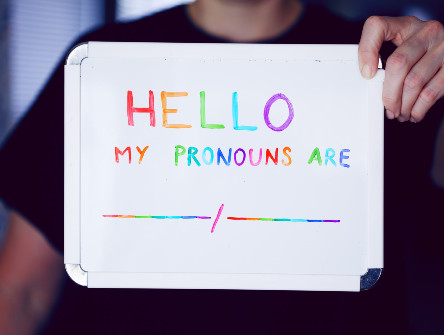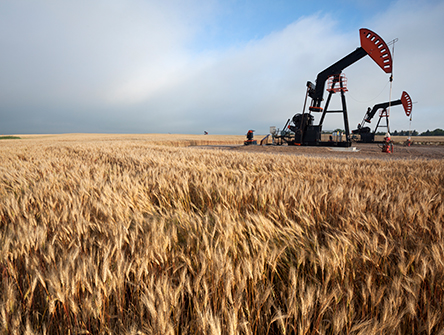Sweet 16: Why lowering the voting age is a good idea
Minors no less than adults have a stake in the country’s future.

During Each Parliamentary session, a number of private members’ bills, a very large number indeed, many hundreds, are introduced. Most of are never going to go anywhere. Deservedly so, in a great many cases. The 42nd Parliament has sat for mere weeks, but there are already bizarre and even blatantly unconstitutional bills before the House of Commons. But there is at least one private member’s bill that deserves to be seriously debated and, in my view, enacted ― although possibly with some modification. It is Bill C-213, introduced by Don Davies, which would lower the voting age from 18 to 16.
As Ilya Somin has contended in posts over at the Volokh Conspiracy,
all the arguments for giving adults the right to vote also apply to sufficiently knowledgeable children. Like the adults, children have a claim to the franchise because government policies affect them too, because otherwise their interests might be undervalued in the political process, because it affirms their status as citizens with equal rights, and so on.
In his view, children should be allowed to vote, without a minimum age, provided that they can pass a political knowledge test. Prof. Somin acknowledges, of course, that many adults lack such knowledge, but he thinks that it is not unfair to treat children, who traditionally have lacked the right to vote at all, differently from adults, even ignorant adults, who already possess it.
At 16, minors may be deemed mature enough to be sentenced as adults for breaking the law. Yet they are denied a say in how these laws are made.
For my own part, I am not quite persuaded by this. As prof. Somin also recognizes, designing and administering an appropriate test in an impartial fashion would be difficult. And I am simply not convinced that it is just to treat minors differently from adults in this way. As I have argued at my blog, Double Aspect, a “bright line” minimum age qualification, however arbitrary, is preferable, and more consistent with the law’s general approach to the transition from childhood to adulthood. Still, there is no particularly good reason why the voting age should be set at 18. A young person is, in some provinces anyway, allowed to leave school at 16, and to work full-time. Even if working part-time, he or she must pay taxes. At 16, minors may be deemed mature enough to be sentenced as adults for breaking the law. Yet they are denied a say in how these laws are made.
As prof. Somin says, minors no less than adults have a stake in the country’s future ― and, as the above examples show, in its present too. Nobody, needless to say, magically acquires maturity, knowledge, or experience upon turning 18. Another voting age can do just as well ― and it seems to me that if we err, we should err on the side of extending the franchise, not of restricting it. 16 is, of course, an arbitrary figure, no less than 18, but as it allows more citizens to vote, it is a better one. (Can this reasoning be taken further? Should the voting age be set at, say, 14 instead? I don’t know. I am content, for now, to argue in favour of Bill C-213, on the basis that it represents an improvement over the status quo; I am not looking for perfection.)
Voting is one thing; being a Member of Parliament is something else.
That said, there seems to me to be one important issue with Bill C-213 in its present form. The Canada Elections Act makes the right to be a candidate largely parasitic on the right to vote. Pursuant to section 65 of that Act, subject to a few exceptions (such as judges, crown prosecutors, prisoners, and members of provincial legislatures), a person can run for Parliament if he or she is “qualified as an elector on the date on which his or her nomination paper is filed.” This means that there is no separate minimum age requirement for being a candidate. Thus, if Bill C-213 is enacted, a 16-year-old could not only vote, but also be a candidate and an MP. I’m not sure that that’s a good idea.
Voting is one thing; being a Member of Parliament is something else. Some countries at least, the United States among them, have different age requirements for voting and holding legislative office. I am certainly open to persuasion on this point, but for now I am inclined to think that, while I would welcome 16-year-old voters, 16-year-old legislators ― however hypothetical the prospect ― would be a step too far. Indeed, I wonder if Mr. Davies intends this result. Perhaps he does, but if that is so, I think it would be useful to mention this in the Bill’s summary. This outcome should be clear both Mr. Davies’ colleagues and to the public, and it should be debated separately from the voting age. And of course if the result is not intended, the Bill would need to be amended so as to introduce a distinct age qualification for candidates.
With this reservation, Bill C-213 deserves our support, and Parliament’s. Although we should often be suspicious of politicians who want to tinker with our electoral rules, because such tinkering is, more often than not, self-interested, enfranchising a significant part of the citizenry is a matter of principle, whatever its partisan implications. And having made much of democratic reform and of making the political process more accessible to the citizens, the Liberal government, in particular, ought to support Mr. Davies’ bill. Our democracy will be better if it does.


